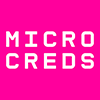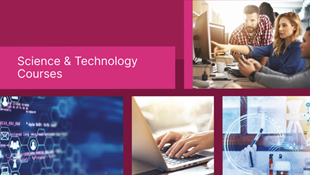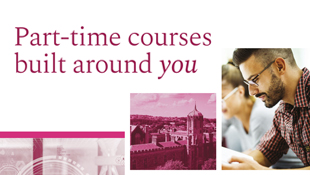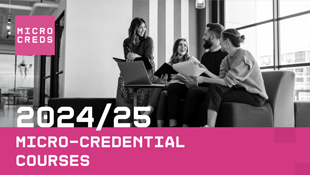-
Courses

Courses
Choosing a course is one of the most important decisions you'll ever make! View our courses and see what our students and lecturers have to say about the courses you are interested in at the links below.
-
University Life

University Life
Each year more than 4,000 choose University of Galway as their University of choice. Find out what life at University of Galway is all about here.
-
About University of Galway

About University of Galway
Since 1845, University of Galway has been sharing the highest quality teaching and research with Ireland and the world. Find out what makes our University so special – from our distinguished history to the latest news and campus developments.
-
Colleges & Schools

Colleges & Schools
University of Galway has earned international recognition as a research-led university with a commitment to top quality teaching across a range of key areas of expertise.
-
Research & Innovation

Research & Innovation
University of Galway’s vibrant research community take on some of the most pressing challenges of our times.
-
Business & Industry

Guiding Breakthrough Research at University of Galway
We explore and facilitate commercial opportunities for the research community at University of Galway, as well as facilitating industry partnership.
-
Alumni & Friends

Alumni & Friends
There are 128,000 University of Galway alumni worldwide. Stay connected to your alumni community! Join our social networks and update your details online.
-
Community Engagement

Community Engagement
At University of Galway, we believe that the best learning takes place when you apply what you learn in a real world context. That's why many of our courses include work placements or community projects.
Medical Device Science (Specialist Diploma)
Course Overview
This one-year, part-time specialist diploma aims to develop specialist knowledge of the medical devices sector and to develop relevant technical and soft skills. The qualification is a minor award at Degree level 8. This course is of benefit to people who require upskilling for career advancement within the medical devices sector, or for those looking for focused re-skilling with a view to a career change. On completion of the course, participants will have highly marketable, up-to-date knowledge and skills relevant to the medical devices sector. Students practice, and are assessed on, a range of technical and transferable skills relevant to meeting future skills needs in the workforce.
The specialist diploma awards are particularly suitable for students requiring medium-term upskilling for career advancement or for those interested in focused study in this subject area for personal or topical interest. The specialist diplomas are linked to the degree cycle of the modular programme in Science & Technology Studies which allow students to specialise by choosing from a range of electives. These elective modules are also available as independent awards which students may take for the purposes of upskilling or retraining in the area of Automation & Control, Medical Device Science, Lean & Quality Systems and Corporate Environmental Planning.
Mode of Study: Online Learning

This course has been approved by both Next Level Skillnet and Galway Executive Skillnet for a fees subsidy of up to 40% for students whose company is a member of their networks. For more information, contact:
Next Level Skillnet – Sue Davies at: sue@nextlevel.ie
Galway Executive Skillnet – Eamonn Molloy at: info@galwayexecutiveskillnet.com
Applications and Selections
Applications are made online via the University of Galway Applications System. This course is listed under Adult Learning Undergraduate\Postgraduate, CPD, Micro-credentials & Summer School Applications.
Please visit our How to Apply page for Application tips and Supporting Documents information.
NB: Applicants should have a Diploma at NFQ Level 7 of 90 ECTS minimum, in a Science, Engineering or Technical area, or otherwise prove that they satisfy the prerequisites of each of the modules as listed in the course outline section.
Who Teaches this Course
Requirements and Assessment
Assessment is through assignments, written examinations and in some cases practical laboratory sessions. Exams take place at the end of each semester. All modules from the course will be individually assessed.
The course is delivered by online learning on a part-time basis. Candidates will receive learning materials in online format for each module. Materials will be specifically designed for independent study and will be supplemented by supporting reading material and interactive learning resources where appropriate. The course requires attendance online for approximately 10 hours per module, mainly on Saturdays.
Key Facts
Entry Requirements
Applicants should have a Diploma at NFQ Level 7 of 90 ECTS minimum, in a Science, Engineering or Technical area, or otherwise prove that they satisfy the prerequisites of each of the modules as listed in the course outline section.
Entry requirements for part-time students can be found here (i.e. age, english language requirements etc.).
Additional Requirements
Recognition of Prior Learning (RPL)
Duration
1-year, part-time
Next start date
September 2024
A Level Grades ()
Average intake
25-30
QQI/FET FETAC Entry Routes
Closing Date
NFQ level
8
Mode of study
Online Learning
ECTS weighting
30
Award
CAO
Course code
Course Outline
The Medical Device Science (Specialist Diploma) consists of 6 inter-related taught modules giving a total of 30 ECTS, to allow individuals to up-skill in a highly focused area of interest. See module descriptions below:
Human Anatomy & Physiology
This module introduces the student to the structure and function of body systems. Anatomy is the science of body structures and their relationship to each other. Physiology is the study of the function of each of these anatomical structures. In this module, the human body is examined on many levels, integrating the anatomy and physiology of cells, tissues, organs, the systems in the discussion of how our body's maintain homeostasis. It aims to enhance the students appreciation of the human body, focusing in particular on its form (Anatomy) and function (Physiology).
Mechanics of Solids
This module in Mechanics of Solids gives the students the opportunity to learn a basic engineering subject and, at the same time, develop their analytical and problem-solving abilities. Considerable emphasis is placed on how to analyse the behaviour of mechanical and structural systems under external loading. Most of the examples and problems require the students to do some original, critical thinking.
Medical Device Science
In this module learners will evaluate the practical application of materials, mechanics and stress analysis theory in the design of medical devices. The module addresses the clinical need, function and design requirements of the most widely used orthopaedic and vascular medical devices. Learners examine the effects of mechanical loading (static, fatigue, wear) and environment on medical devices.
Biocompatibility & Device Design
This module offers a comprehensive review of all the major biomaterials. It provides a general introduction to the different classes of materials that are used in biomedical applications. It identifies ideal biomaterials for different applications, and characterises biomaterials in terms of their structural, physical and biological attributes.
Product & Process Development
The aim of this module is to give students a broad overview of some of the methods and techniques that are used to develop new products. In addition, it will assist in developing a number of Professional Transferable Skills (PTS), such as critical thinking, problem solving, and written communication.
Regulatory Compliance
This module presents an overview of the regulations governing the development, manufacture and marketing of drugs and medical devices, inclusive of in vitro diagnostic devices. It provides an overview appreciation of the regulatory framework pertaining to the pharmaceutical and medical device industries. The module will equip participants with the concepts necessary to enable them work effectively with regulatory affairs personnel, and will act as a reference guide to help participants identify and source specific regulations.
NB: the following modules can be taken as micro-credentials:

Why Choose This Course?
Career Opportunities
This course is intended for medical device operatives and technicians who wish to advance and hone their skills with a view to moving into management roles. It will also be beneficial to those from a science or engineering background who wish to transfer existing skills and develop specialist knowledge in order to move into the medical devices sector.
Who’s Suited to This Course
The specialist diplomas are primarily intended for students who already have a Science or Engineering related diploma or degree and who wish to up-skill or become expert in one of the specialist areas as offered through these one-year diploma courses.
Learning Outcomes
Transferable Skills Employers Value
In addition to developing content knowledge this programme aims to develop useful skills, known as Professional Transferable Skills (PTS). The importance of PTS is now widely recognised in the workplace. The following nine skills are considered to be the most important in the context of this course and are particularly advantageous at management levels:
- problem-solving
- critical thinking
- decision-making
- oral communication
- written communication
- team-working
- networking
- customer-centric skills
- creativity, innovation & entrepreneurship
Work Placement
Study Abroad
Related Student Organisations
Course Fees
Fees: EU
Fees: Tuition
Fees: Student levy
Fees: Non EU
NB: EU Fees are comprised of Tuition + Student Levy.
*Next Level Skillnet and Galway Executive Skillnet funding (40% fee subsidy) is available for this course. You also may be eligible for the Adult Learning Tuition Scholarship, find out more here.
Find out More
What Our Students Say

Eimear O’Hara | Current Student
I recently moved from a mechanical engineering role into medical devices and thought this course was well suited for a smoother transition. I found the project the most enjoyable aspect as the topic was relevant to my current role, and the data gathered was of practical use to the company. The project was complimented by each of the modules I undertook during the course. Although lectures are only held every month or so, the scope of modules in conjunction with continuous assessment mean that good time management is necessary for balancing the course with work and personal commitments. This course has provided me with greater confidence in terms of analysis of medical device literature, design and development. The course has been very helpful in terms of providing me with a good overview of medical device development and has complimented my new role well. I think the opportunity to study while working is a greater advantage, as opposed to full-time study, as I was able to observe the real-world implementation of many of the aspects I learned about in the classroom.

Sharon Conway | Student
I decided to return to education after an 18-year gap to reskill and challenge myself to enter a new industry in the thriving Med Tech sector here in the west of Ireland. The modules to be covered were Human Anatomy & Physiology, Mechanics of Solids, Medical Device Science and Biocompatibility & Device Design. There was also a Project to be completed on a specific area and topic of interest to complete also. The course overall allowed me to keep working full time and to enjoy a work/life balance, which was a major influencing factor. Before the world ever heard of what now has become Covid-19, lectures were on campus held on one Saturday every 2/3 weeks. As Covid-19 was an ever-changing situation the course assessments and examinations continued online. I was particularly looking forward to the day that was going to be spent in the biomechanical engineering laboratory. I have to say before starting this college course I was a little apprehensive and questioned my ability to fulfill the course work but having been reassured and encouraged by fellow students and staff to keep with it and stick at it and I am truly delighted and proud of my accomplishment.



















